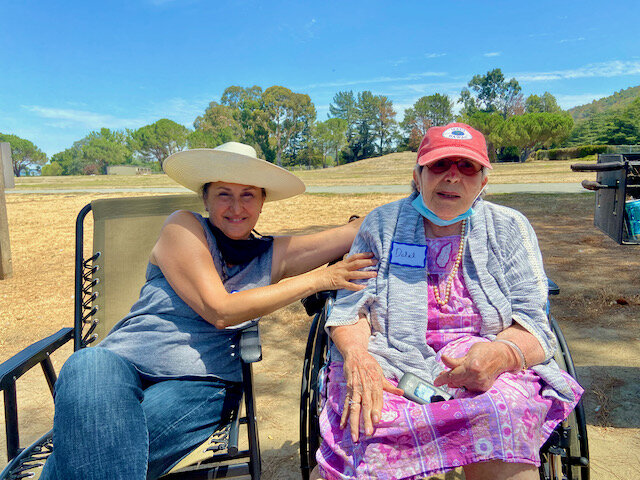Aging comes with unique health challenges, but technology is playing an increasingly vital role in supporting senior well-being. From wearable health devices to mobile apps and virtual healthcare services, technological advancements are helping older adults live healthier, more independent lives. This article explores how different types of technology are transforming senior health and providing valuable tools for both seniors and caregivers.
The Growing Need for Senior Health Technology
As people live longer, the demand for senior healthcare solutions continues to rise. According to the World Health Organization (WHO), the global population of people aged 60 and older is expected to double by 2050. This demographic shift makes it crucial to find innovative ways to manage age-related health concerns, including chronic conditions, mobility limitations, and cognitive decline.
Technology offers practical solutions for these challenges. It can help seniors monitor their health, stay connected with loved ones, and access medical care more conveniently. Let’s explore some of the most impactful technological advancements in senior healthcare.
Health and Wellness Apps
Mobile apps have become an essential part of healthcare management, offering seniors a way to track their health, schedule appointments, and even receive virtual therapy. Here are some of the most popular types of health and wellness apps for seniors:
1. Medication Management Apps
Forgetting to take medications or taking the wrong dose is a common issue among seniors. Apps like Medisafe and MyTherapy help seniors set reminders for their medications, track their prescriptions, and alert caregivers if a dose is missed.
2. Fitness and Mobility Apps
Exercise is crucial for maintaining mobility and overall health. Apps like SilverSneakers GO and Tai Chi for Seniors offer guided workouts designed for older adults, helping them stay active while reducing the risk of falls.
3. Mental Health and Brain-Training Apps
Cognitive health is just as important as physical health. Apps like Lumosity and Elevate provide brain-training exercises that enhance memory, problem-solving skills, and cognitive flexibility. Additionally, meditation apps like Headspace and Calm help seniors manage stress and improve mental well-being.
Wearable Health Devices
Wearable technology is revolutionizing senior healthcare by providing real-time health monitoring and emergency support. Some of the most popular wearable devices include:
1. Smartwatches and Fitness Trackers
Devices like the Apple Watch, Fitbit, and Garmin track heart rate, steps, sleep quality, and even blood oxygen levels. Many of these devices can alert seniors or their caregivers to potential health concerns, such as irregular heart rhythms.
2. Fall Detection Devices
Falls are a major health risk for seniors. Wearables like the Philips Lifeline and the Apple Watch Series 8 include fall detection features that can automatically alert emergency contacts if a fall occurs.
3. Remote Monitoring Devices
Devices like the Omron HeartGuide monitor blood pressure, while continuous glucose monitors (CGMs) like the FreeStyle Libre help diabetics manage their blood sugar levels. These wearables allow seniors to share real-time data with their doctors, reducing the need for frequent clinic visits.
Virtual Healthcare and Telemedicine
Telemedicine has gained significant traction, especially since the COVID-19 pandemic, making healthcare more accessible to seniors who may have mobility issues or live in remote areas.
1. Online Doctor Consultations
Services like Teladoc Health and Amwell provide virtual consultations with physicians, allowing seniors to receive medical advice from the comfort of their homes. These platforms are particularly beneficial for managing chronic conditions and minor health concerns without unnecessary trips to the doctor’s office.
2. Remote Physical Therapy
For seniors recovering from surgery or injuries, virtual physical therapy services like Hinge Health and Kaia Health offer guided exercise programs with professional supervision. This ensures they get the care they need without the hassle of traveling to a clinic.
3. AI-Powered Health Assistants
AI chatbots and virtual assistants, such as Google Assistant and Amazon Alexa, can help seniors manage their daily routines by setting medication reminders, answering health-related questions, and even calling for emergency help if needed.
Smart Home Technology for Senior Health
Smart home technology enhances safety and convenience for seniors, allowing them to maintain independence while reducing risks. Some of the best smart home innovations include:
1. Smart Home Assistants
Devices like Amazon Echo and Google Nest provide voice-activated control over household tasks, such as adjusting lighting, setting reminders, and making emergency calls.
2. Smart Pill Dispensers
Automated pill dispensers, like Hero and MedMinder, release the correct dosage of medication at scheduled times and send alerts if a dose is missed.
3. Home Monitoring Systems
For seniors living alone, home monitoring systems like Nest Cam and Ring Video Doorbell provide security by detecting unusual activity and alerting family members or caregivers.

Overcoming Barriers to Technology Adoption
Despite the many benefits, some seniors are hesitant to adopt new technology due to lack of familiarity or fear of complexity. Here are some ways to make technology more accessible:
1. User-Friendly Interfaces
Technology companies are increasingly designing devices with seniors in mind, offering larger buttons, voice commands, and simple navigation to enhance usability.
2. Technology Training Programs
Community centers, senior organizations, and local libraries often provide free or low-cost technology training to help seniors learn how to use smartphones, tablets, and wearable devices.
3. Support from Family and Caregivers
Encouragement from family members can make a significant difference in how seniors adopt technology. Setting up devices, providing tutorials, and offering ongoing support can ease the learning curve.
The Future of Senior Health Technology
As technology continues to advance, we can expect even more innovations aimed at improving senior health. Developments in artificial intelligence, robotics, and biotechnology will further enhance remote healthcare, personalized medicine, and daily living assistance for older adults.
From wearable health trackers to virtual doctor visits, technology is helping seniors lead healthier, more independent lives. By embracing these innovations, seniors and caregivers can benefit from improved healthcare access, better safety measures, and enhanced quality of life by going here.
Whether you’re a senior looking to improve your well-being or a caregiver seeking tools to support a loved one, exploring these technologies can be a game-changer. The future of senior health is here, and it’s more connected and accessible than ever before.

